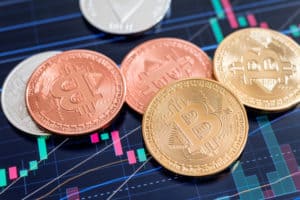2019-2-13 09:33 |
BitMEX published a report this week titled, “Anatomy of the Next Global Financial Crisis,” which discusses multiple details to answer a single question – “When is the next global financial crisis going to happen?” Though this information is based off of the current trends and information in the market, consumers would likely benefit from knowing what to prepare for.
The last financial crisis happened in 2008, during a time when banks were largely the biggest risk. However, Bitcoin was born out of this crisis, and there is been a lot of change to come from the industry ever since. Due to the current asset management industry, BitMEX makes one of their first predictions – threats will not likely be geared towards retail banking deposits and payment systems. Instead, the fragile area of the industry will most likely be “corporate debt investment funds and unconventional debt investment vehicles.” The report states that these areas of the sector have a low return and low volatility.
The report claims that there are three specific assumptions that the public makes about an upcoming crisis that are implied by the question that BitMEX hopes to answer. Those assumptions are:
“The next global financial crisis will arrive in the next few years and it’s inevitable one will occur every decade or so.” “Such a crisis will have a positive impact on the price of Bitcoin.” “The next global financial crisis will look similar to the last one, resulting in many questioning the integrity of the banking system and electronic payment systems.”BitMEX does not agree with any of the assumptions but the first, though saying that the others have “significant uncertainty about them”
In the last 10 years, one of the biggest changes in the banking industry has been the improved strength of capital ratios and bank balance sheets. However, in western banks, BitMEX points out a steep decline in total asset in aggregate. The report says, “In our view, financial leverage is one of the primary drivers of financial risk. The epicenter of risk in the financial system appears to have shifted since 2008. In 2008, the risk was caused by leverage in the banking system and the interrelationships between this and the securitization of the mortgage market. Today, the equivalent risk is leverage in the asset management industry and in particular the corporate debt sector, driven by the deceptively low volatility environment.”
The leverage and transparency of the asset management industry is “far more opaque,” says the report. There is no way to truly figure out the leverage that this industry has, or so there can’t be any prediction of the timing of a financial crisis through that leverage. The report references an article from the 2015 Bank of International Settlement (BIS) report entitled “Leverage on the buy side.”
In the report, the writers point out how substantial of a role that leverage played in the global financial crisis 11 years ago. However, to remedy these problems, the BIS report discusses how asset managers “have quickly increased their footprint in global financing, helped by the sharp retrenchment of banks nursing their balance sheets back to health. Balance sheet information for investment funds is much less readily available than for highly regulated banks.” The report continues, pointing out that the varying leverage for the “buy side” (asset managers) is substantial, though it “seems to vary considerably depending on the type of fund.”
The traditional financial system obviously finds more necessity in banks, rather than asset managers. Even with new pressure from the economy, both retail and corporate deposits should not have to worry, which will hopefully mean a less significant crisis than what the public experienced last time. The report adds, “However, critically, the potential for government intervention to mitigate the impacts of the crisis may be more limited than in 2008.”
Finally, in the last paragraph of the report, BitMEX returns to the original question – when will this crisis happen? As if there could be any other answer, they “obviously do not know.” They comment that all of the charts included in their report shows that there are problems, but there’s no indication that a crisis is imminent or years from now. Profiting from these events is even more difficult.
The company concludes, “Maybe one could construct a portfolio of VIX calls, long dated corporate bond ETF puts, index-linked government bonds, hedge funds specializing in volatility, gold and maybe to a lesser extent, even Bitcoin. Again, although one cannot know when these events will occur, perhaps now is a time to adjust one’s investment portfolio.”
origin »Bitcoin price in Telegram @btc_price_every_hour
Formosa Financial (FMF) на Currencies.ru
|
|
















